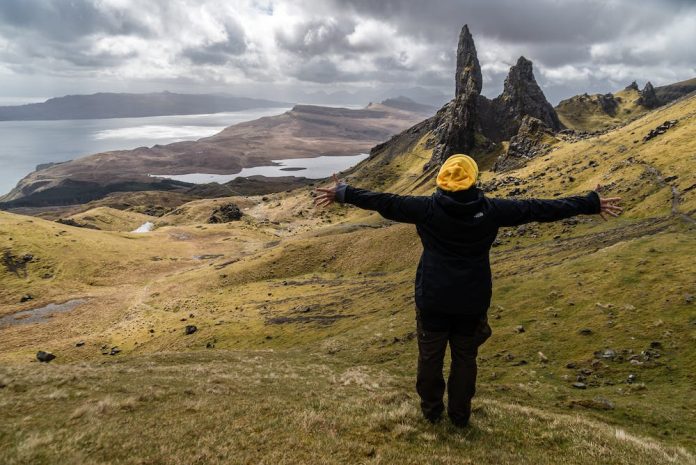In our interconnected world, cultural tourism has emerged as a transformative way to embrace the richness of human heritage. Travelers desire for sincere experiences that fully immerse them in the history, culture, and customs of the destination. However, the demand for sustainability has grown more urgent due to the popularity of cultural tourism. In this article, we delve into the captivating realm of sustainable cultural tourism, unveiling a comprehensive set of guidelines that champion responsible practices. These guidelines aim to preserve cultural integrity, minimize environmental impact, and empower local communities, fostering a harmonious balance between exploration and preservation.
Preserving Cultural Integrity: Celebrating Authentic Encounters

At the heart of sustainable cultural tourism lies the fundamental principle of preserving the intrinsic cultural integrity of destinations. Travelers are no longer satisfied with superficial experiences; they crave authentic connections that honor the essence of a place. It becomes paramount to foster meaningful cultural interactions that go beyond commodification or exploitation of local heritage. Inclusive tourism planning and decision-making processes, which actively involve local communities, ensure their cultural practices are respected and preserved. This collaborative approach allows for the co-creation of tourism experiences that showcase the authentic soul of a destination.
Minimizing Environmental Impact: Embracing Responsible Travel
True sustainability in cultural tourism necessitates a conscious effort to minimize the environmental footprint associated with travel. The allure of cultural exploration must coexist with environmental responsibility. By adopting eco-friendly practices, such as promoting sustainable transportation alternatives, implementing energy-efficient infrastructure, and establishing robust waste management and recycling initiatives, cultural tourism destinations can harmonize visitor satisfaction with ecological stewardship. These initiatives not only mitigate the negative impact of tourism but also protect the natural beauty and resources that draw travelers to these destinations.
Empowering Local Communities
In the realm of sustainable cultural tourism, the expertise of individuals specializing in beautiful places like Jordan shines as a beacon of wisdom. Samer Muasher, a respected local expert in sustainable tourism, emphasizes the pivotal role of empowering local communities. His invaluable insights highlight the importance of active engagement and collaboration, as it allows communities to take ownership of their cultural legacies. By providing training, capacity-building opportunities, and fostering entrepreneurship, communities become equal stakeholders in the tourism value chain. This inclusive approach ensures that cultural tourism not only benefits visitors but also directly uplifts the well-being of local residents.
Supporting Local Communities: Creating Lasting Connections

Sustainable cultural tourism goes beyond economic considerations; it aims to support and uplift local communities. By encouraging travelers to stay in locally owned accommodations, dine at indigenous restaurants, and purchase locally made handicrafts and products, tourism revenue flows directly into the community, stimulating economic growth and preserving traditional livelihoods. Community-based tourism initiatives and cultural exchange programs foster deep connections between visitors and locals, creating mutual understanding, fostering empathy, and nurturing cultural appreciation. This synergy allows for a sustainable tourism experience that leaves a lasting positive impact on both visitors and communities.
Education and Awareness: Fostering Responsible Travelers
Education and awareness stand as the cornerstones of sustainable cultural tourism, infusing the realm of travel with a vibrant tapestry of knowledge and understanding. In a world where wanderlust knows no bounds, it becomes paramount to equip globetrotters with a profound appreciation for cultural sensitivities and environmental fragility. As travelers embark on transformative journeys, they must tread lightly, leaving a positive footprint in their wake. Armed with curiosity and a thirst for discovery, travelers are urged to seek out comprehensive resources that illuminate the intricacies of their chosen destinations. Beyond guidebooks and online travel platforms, they can engage with immersive narratives that unravel the tapestry of customs, traditions, and the very essence of the cultural fabric they encounter. These sources serve as beacons, illuminating the path to responsible exploration. Within the heart of local communities, a wealth of knowledge resides—interpretive centers, museums, and cultural institutions that beckon travelers to venture beyond the surface. These vibrant hubs pulsate with the vibrancy of untold stories, serving as conduits between the past and present. Visitors who step through their doors find themselves enveloped in a symphony of sights, sounds, and narratives that paint a vivid portrait of cultural heritage. From artifacts whispering ancient tales to interactive exhibits that invite tactile exploration, these immersive experiences kindle sparks of curiosity and ignite flames of understanding.
Sustainable cultural tourism offers a transformative pathway that seamlessly merges the yearning for exploration with the preservation of cultural heritage and the protection of our planet. We create the conditions for a healthy balance between economic growth, preservation of culture, and environmental protection by adhering to the thorough principles provided in this article. By fostering positive change and improving the lives of both tourists and locals, sustainable cultural tourism acts as a catalyst. Let us embrace the boundless possibilities of sustainable cultural tourism, ensuring a legacy of prosperity, intercultural exchange, and environmental stewardship for generations to come.



































































